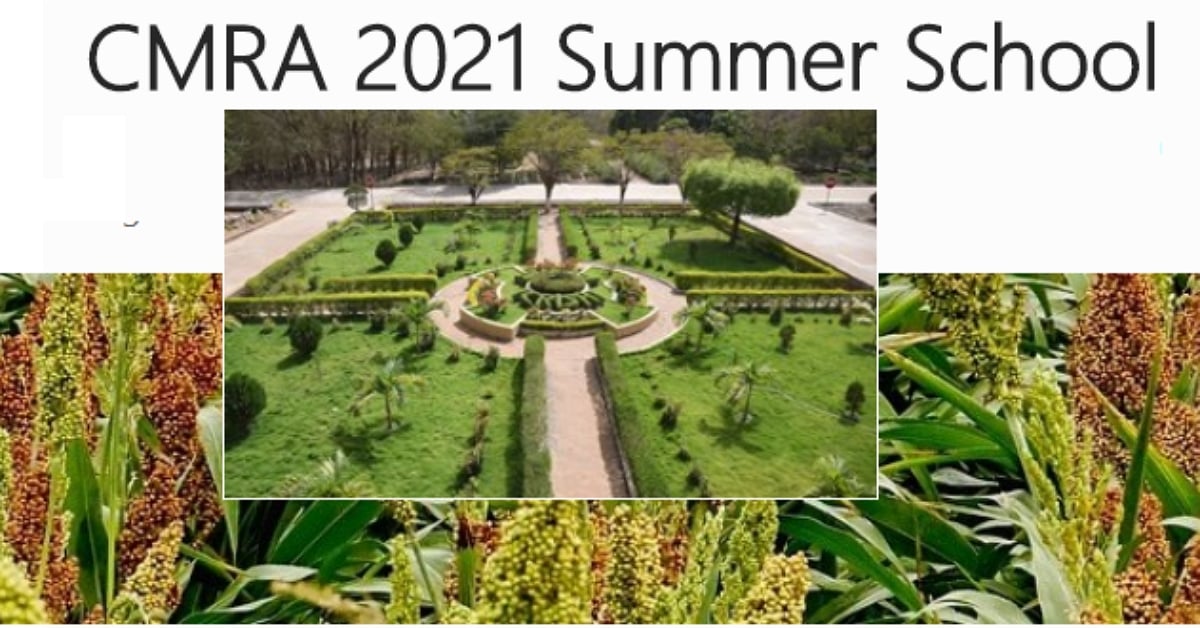
Modelling approaches for climate risk and climate change adaptions in the context of sustainable intensification in semi-arid West Africa
The Leibniz Centre for Agricultural Landscape Research (ZALF) and the International Crops Research Institute for the Semi-Arid Tropics (ICRISAT) invite applications for an international summer school that will take place at the ICRISAT regional headquarter in Bamako, Mali.
Applications are invited from highly-motivated middle stage PhD students and postdocs from West Africa and Germany with a background in agricultural or environmental sciences and some prior modelling experience.
The summer school aims to enhance awareness of the state of the art in crop modelling for addressing climate risk and sustainable intensification among the region’s next generation of researchers and agricultural policy makers. It is designed to provide students with a broad overview of system’s analysis, best practices in model application climate change impact assessments, as well as emerging applications and challenges for crop modelling to support sustainable intensification of smallholder farming systems. Students will be equipped with knowledge and skills to use crop models in the design and assessment of resilient and productive cropping systems.
Offered in French and English, the course will combine lectures with international experts, together with hands on tutorials, and group work and discussions. The maximum number of participants is 26.
Date
The summer school will be held from February 21-28, 2021 (COVID-19 dependent back-up date: September 5–12, 2021)
Location
International Crops Research Institute for the Semi-Arid Tropics (ICRISAT), Bamako, Mali
ICRISAT headquarters
Download
All presentations, made available by lecturers, and selected photos are posted on the website (log in required).
Organizers
The Leibniz Centre for Agricultural Landscape Research (ZALF) is the organizer of the summer school. ZALF has long-term research experience on addressing issues related to water, energy, soil, and sustainable agriculture. In particular, it is well-known for its interdisciplinary group of scientists who employ theoretical as well as advanced methodological tools in analyzing agricultural landscapes.
The International Crops Research Institute for the Semi-Arid Tropics (ICRISAT) is the hosting institution of the summer school. ICRISAT has significant expertise in cropping system analysis and communicating scientific results.
Course description
Objectives
The summer school aims to enhance awareness and appreciation of the state of the art in crop modelling for addressing climate risk and sustainable intensification among the region’s next generation of researchers and agricultural policy makers. The training will emphasize recent model developments, methodologies for analysis, as well as key limitations in their use and emerging complimentary data driven approaches. Best practices for stakeholder engagement, study design, data processing, scenario formulation, model selection, model parameterization, and uncertainty analysis will be explored. A second aim is to provide students with experience in designing projects considering transdisciplinary perspectives on how and to which extent cropping system models can be applied for impact in decision making processes and sustainability outcomes for a range of actors.
Course format
The course will make use of a balance of lectures with international experts; group discussions with peers and lecturers; model demonstrations and applied tutorial exercises; and group work in designing and implementing model-based analyses and student presentations. Lectures will be given in either French or English with translations provided for the other.
Learning outcomes for students
After completing the course, students will be able to:
Mali farm, peanut
Expected results
It is intended that the summer school will lead to a number of important outcomes for the region, including:
Application
Interested PhD and post-doc researchers should send their application documents by e-mail (1 single pdf-file, max. 3 MB) to  . Please include in your application:
. Please include in your application:
Applications can be made in English or French. The application language will be used to place selected candidates in project and tutorial groups.
Since we aim to have a good representation of women and men in the course, we strongly encourage you to indicate your gender in your application.
Applications will only be considered when sent to  . Closing date for receiving applications is July 1st, 2020.
. Closing date for receiving applications is July 1st, 2020.
Contact
If you have any questions please contact Dr. Heidi Webber ( ) or Dr. Nadine Worou (
) or Dr. Nadine Worou ( ) with cc to
) with cc to  .
.
Target Group
Current PhD students & postdocs with an academic background in crop physiology; agronomy; agricultural engineering; soil science; environmental science, or similar with experience working with smallholder farmers in semi-arid West Africa are encouraged to apply. Applicants should be West African or German nationals, or currently study in Germany and conduct research in West Africa. Preference will be given to candidates with experience using modelling tools, or in applying quantitative methods in regions with significant climatic risks for agriculture such as the Sahel and Sudan-Savanah regions.
Fees
Travel costs, visa fees (if required), food and accommodation will be covered for successful applicants.
See the Complete Details Here https://communications.ext.zalf.de/sites/summer-school-CMRA2020/en/SitePages/Home.aspx
Leave a Comment